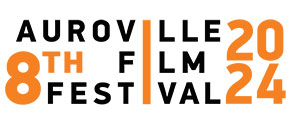AVFF Day 5: January 26, 2024
The character Iniyan, in the film “Iniyan”is the narrator’s link, and so our link, to an ancient civilization, now submerged in the Indian Ocean. What makes this civilization crucial and important is that it encapsulates Auroville’s credo—a place of human unity, of complete unity in diversity.
The film is an allegory. The director leads us into the story by setting up Iniyan’s character and the culture he represents. He represents History before History. He is of the ‘Amman’: a fertility cult with an agricultural tradition. To follow them would be to understand the symbols, archetypes and rituals of the ancient civilization.
Iniyan is the guide, the link, to a civilization of which we do not even know the alphabet. “Precious earth-moments when even evolution holds its breath.” The remnant descendants of the civilization stand separate from cultural, religious and caste systems…they remain aloof from it.
So, it is alluded that we are taken on this journey…with “a spirit of adventure, which grows and builds…an alchemical vessel to liberate the molten gold in the cells of man and in the atoms of matter…a house of transformation.”
This brilliant adventure ends by coming back to the beginning, a trope for the cyclical nature of History, which is about the continent that is now submerged. And yet, it has found a new home in Auroville, a new home for human unity.
The filmmaker panel discussion in the evening was a splendid occurrence, because three seemingly disparate documentaries found a commonality. The first documentary, “12 Petals” was of the spiritual exploration to design the Matrimandir. The second “Solidarity Crime” was about migrants in Europe. The third one was “Judges Under Pressure” where the Polish government has been undermining judicial independence.
The spiritual and the political found an agreement, for shouldn’t the two go about improving the lives of those involved? That going inward, spiritually, is filling a need to create dynamic compassion, which is what providing humanitarian aid to migrants, and canvassing and organizing for judicial autonomy are about anyway?
Also, I found a dynamism in each of the speakers as personalities. Juan from “Solidarity Crime” had a chatty effervescent energy, Kacper of “Judges…” had an erudite charm, holding back just that tad bit, and Michele of “12 Petals” had a warmth, and a keen sense of tying up things together which I felt helped the audience (especially at the end) create a shared space. I mean, she was talking of synchronicities, so…


